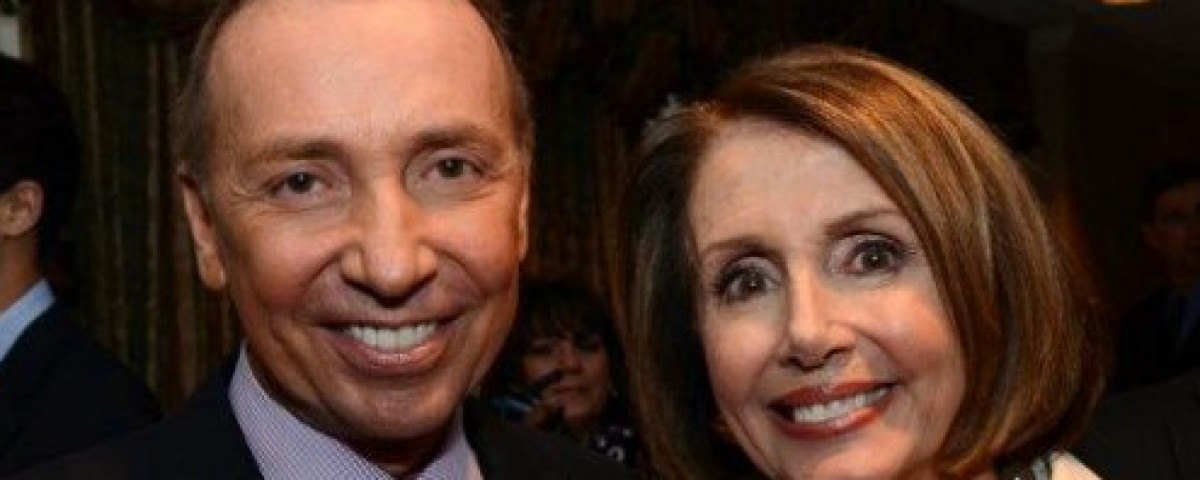
Should American Progressives Be Calling for a “Public Option” in Banking?
November 30, 2011 | Economics & Trade Politics and Policy Progressive Political Commentary

Proposals for a public banking option are almost unheard of in the U.S., where free-market orthodoxy has, throughout most of our history, held sway over collective approaches to the provision of public and private goods and services. Nonetheless, the concept deserves serious consideration based on the evidence in at least a couple of areas. First, there is the striking success of this model in other advanced and advancing economies for providing and directing lower-cost, long-term capital essential for growth. And second, while better financial sector regulation, oversight, and enforcement might mitigate the worst excesses of an opaque multinational private banking system, it remains doubtful that the resources of regulators can ever match those of the private banking system to circumvent regulations and evade the consequences of wrongdoing. It is now widely understood that the private global banking and financial system has failed to serve the “real” economy, or what we often call, “Main Street.” This is not just the case in the U.S. Europe’s problems, while largely due to an ill-designed monetary union and the high sovereign debt of certain member countries, has been exacerbated by the same short-term-profit-driven, casino approach that has characterized the U.S. financial sector. Perhaps the time has come to consider another model, one that treats banking and finance more like a public utility. A public bank would not have to be beholden to shareholders demanding a 20% annual return. It could circumvent incentives that induce management to take extraordinary risks (cognizant that in the worst-case
Read More...
Support Families like Mine: End Inequality in Immigration Policy
October 22, 2011 | LGBT Issues Mexico Politics and Policy Progressive Political Commentary

I’m one of the lucky ones – lucky because I’ve had the good fortune to share the past ten years of my life with the person I love, despite the fact he’s a Mexican citizen, and I’m an American citizen. I’m lucky because, in 2001 when we met, I had the resources, ability, and the option to move to Mexico and establish a business and a life with Luis. I’m lucky because Luis and I built a rich and rewarding life together. We enjoy the love and support of both our families, we have a wonderful circle of friends, and we’ve been able to give back to our Mexican community in ways that have been incredibly satisfying. Unfortunately, the past two years have shown us just how fragile that luck has been. My business, a small resort hotel catering to LGBT vacationers to Puerto Vallarta, has suffered greatly since the U.S. economy took its nosedive in late 2008. In 2009, Mexico was the epicenter of the H1N1 flu scare – it nearly shut down the tourism industry for a couple of months. And mounting concerns over the safety and security of travel to Mexico due to drug cartel violence has further decimated the tourism industry and my once-thriving business, despite the fact that the violence is enormously hyped by U.S. media and is mostly localized in a few cities far from Puerto Vallarta. Times are hard. The economic realities of a struggling business in Mexico have compelled me to return
Read More...
Why the NAFTA-style Free Trade Agreement Will Fail to Benefit Colombia
October 21, 2011 | Economics & Trade

Despite evidence of limited economic welfare benefits and significant social costs, Latin American countries have been signing and ratifying trade treaties with the United States since the early 1990s. This week, the long-stalled treaties with Colombia and Panama were ratified by the U.S. congress and signed by the President. Like other trade treaties, these were based on the same template that has been the basis for U.S. trade policy since NAFTA. In the case of the Colombia Free Trade Agreement (Colombia FTA), promises from the government of President Juan Manuel Santos to better protect trade unionists pressured enough reluctant Democrats to vote in favor of the agreement. Over 4,000 trade unionists have been murdered in Colombia in the past 20 years, mostly by right-wing paramilitaries with links to the government, making Colombia the most dangerous country in the world to support collective bargaining rights. Colombian labor union leaders have rejected government claims that human rights and trade unionist protection has improved, denigrating symbolic gestures aimed at securing U.S. ratification of the agreement, which they rightly claim will help multinational companies over Colombian workers. In addition to doubts that the Colombian government will live up to its promises vis-à-vis the trade unionists, the gains from trade that Colombia can expect once the agreement is in force are ambiguous at best. When the gains to some sectors (e.g. cut flowers, leather goods, seafood, textiles, certain services) are measured against the losses to other sectors (e.g. rice, corn, poultry, communications technology), along with fiscal
Read More...
Conceptual Frameworks, Language, and Messaging: Why Conservatives have dominated American public discourse, politics, and policy for a generation
October 21, 2011 | Progressive Political Commentary

The anger on the Tea Party right, and the frustration on the left that has energized the "Occupy” movement in cities across America, spring from similar, mostly economic, dissatisfactions. The difference is that those on the rightght have been co-opted to a set of beliefs that are actually in opposition to their own economic interests. Those involved in the “Occupy” movement, and others on the left are quite clear about where their interests lie, despite concerns by media pundits that the participants in the “Occupy” movement thus far lack a clear set of policy demands. Voters from the right vote their aspirations, rather than their reality, while the policies they support make it less likely that they (or their children) will ever achieve the economic security and self reliance to which they aspire. Led to believe that they could succeed if only government would get out of the way, they believe in “personal freedom,” but lack an understanding of the nature of freedom as defined by our Constitution. They advocate an ideology of “personal responsibility,” rejecting the mutual responsibility required for social and national cohesion and willfully ignorant of the benefits they enjoy thanks to a social contract embodied by our government. The right demands lower taxes and ever smaller, ever more impotent government, focused narrowly on national security, administration of a harsh conception of justice (largely punishment, meted out by a for-profit prison industry), and promotion of the orderly but “unfettered” conduct of business. Despite incongruity with a small-government
Read More...
The U.S. Postal System Crisis: Product of Conservative “Reform”
September 27, 2011 | Politics and Policy

Today, the postal unions representing America's postal workers is organizing a nationwide "Day of Action" to save the US Postal Service (USPS). National news media have reported extensively on the budget crisis facing the USPS, but has done a typically abysmal job of explaining why the crisis exists. These are the facts... Republicans, with the support of the Postmaster, are demanding service cuts and layoffs due to the U.S. Postal Service’s (USPS) inability to fund $5.5 billion due on September 30 to its federal retiree health fund. The expected 100,000 layoffs, in addition to exacerbating an already grim unemployment picture in the U.S., will hit African-Americans and veterans particularly hard – two groups that already have much higher unemployment rates than the national average. But apart from the employment issue, we need to be asking why the USPS is in such dire straits in the first place. The biggest budget problem by far facing the USPS is the mandate placed on it by an outgoing Republican congress in 2006, requiring USPS to pre-fund, over a decade, its employee pensions for 75 years. The USPS is among a handful of employers still offering a defined benefit pension plan that provides real security to retirees after a lifetime of work. The pre-funding requirement, never asked for by the postal unions, was and remains a poison pill for a federally run postal delivery service. No other pension plan, either public or private, is required to pre-fund pension obligations for 75 years into the
Read More...
Mexico: Victim of America’s War on Drugs
March 8, 2011 | Mexico Politics and Policy
Mexico: Victim of America's War on Drugs Paul Crist, March 3, 2011 All is not well in the complex and multifaceted relationship between the U.S. and Mexico. A number of recent issues have heightened tensions, including the murder of U.S. Immigration and Customs Enforcement (ICE) agent Jamie Zapata, and the wounding of another agent on February 15th, on a highway near San Luis Potosi. That incident has once again ratcheted up jingoist rhetoric from some U.S. politicians and the sensationalist frenzy of U.S. corporate media. The Mexican government swiftly arrested alleged perpetrators, and have emphasized that the gun used, as most guns used in violent crimes in Mexico, came from north of the border. The leaking by Wikileaks of diplomatic cables written by U.S. Embassy personnel depicting Mexico's armed forces and police agencies as "inefficient, corrupt, riven by infighting," and "reliant on the United States for leads and operations" has infuriated Mexican President Felipe Calderón. Mexico continues to wait for the opening of U.S. highways to Mexican trucks, as called for under the North American Free Trade Agreement. (The U.S. Congress has blocked the program under pressure from industry groups, with arguments about highway safety and illicit drug and human trafficking concerns). Mexicans are angered by state-level measures to crack down on undocumented migrants such as the Arizona "papers please" law. Indiana just slipped through similar legislation while the media was focused on protesting workers, fighting to protect the right of collective bargaining. More states are sure to follow soon
Read More...
ADA Launches Jobs-Social Security-Minimum Wage Campaign
January 21, 2011 | Paul Crist
ADA Launches Jobs-Social Security-Minimum Wage Campaign Undaunted by setbacks, Americans for Democratic Action today launches a Progressive agenda for jobs, rejuvenating the American economy, saving Social Security, and raising the minimum wage. JOBS • Workers without jobs can’t provide adequately for the basic needs of their families. The unemployment crisis is damaging families and contributing to a multitude of economic and social ills, including: o The highest poverty rate for working-age people between 18 and 64 – 12.9% in 2009 – since 1965. Today, 43.6 million Americans are living in poverty, 19 million of whom are in deep poverty. o Workers who have lost their jobs through no fault of their own often cannot pay mortgages and rent, even when receiving unemployment benefits, which are not equivalent to wages lost. The foreclosure crisis –primarily the outcome of misdeeds of bankers and mortgage brokers – is driving further declines in home values while destroying once-vibrant neighborhoods. Joblessness also contributes to increased homelessness, which is not only tragic for families who lose their homes, but is accompanied by broader social harms and increased budget pressures on already strapped local and state governments. o Unemployed workers – along with many who are still employed – are losing employer-based health insurance coverage. In 2009, 50.7 million people were without health insurance – the highest number of uninsured since the Census started collecting the data in 1987. Joblessness is increasing pressure on public programs such as Medicaid, while increased use of uncovered emergency services by
Read More...
Inequality in Latin America and the Caribbean
January 5, 2011 | Paul Crist
By Paul Crist December 18, 2010 According to the first ever Human Development Report for Latin America and the Caribbean, “Acting on the Future: Breaking the Intergenerational Cycle of Inequality,” published by the United Nations Development Program (UNDP) in July of 2010, the region is the most unequal in the world. Ten of the fifteen countries with the highest levels of inequality are in Latin America and the Caribbean (LAC). According to the report, inequality in the LAC region is 65% higher than in high-income countries, 36% higher than in Asia, and 18% above Sub-Saharan Africa. Not only is the region the most unequal, the inequality is persistent from generation to generation and characterized by low social mobility that has led to an “inequality trap” that is difficult to break. Coupled with, but distinct from poverty, inequality poses obstacles to progress in human development and democratic stability. Lack of equality of opportunity and empowerment lead to marginalization, oppression, and domination. Women, indigenous groups, sexual and gender identity minorities, and African-descended populations are particularly vulnerable. Because inequality negatively affects nearly every aspect of social organization, it remains the LAC region’s greatest challenge. It is a complex issue with many dimensions beyond mere inequality of access to goods, services, and income. Inequality of opportunity and life choices; inequality in education, health, and other indicators of human development; inequality in terms of political involvement and influence; and other dimensions all matter. Inequality is the product of a combination of factors. It cannot be
Read More...
JOBS, JOBS, JOBS: A Primer for Politicians who flunked ECON 101
November 9, 2010 | Economics & Trade Politics and Policy
Workers without jobs can’t provide adequately for the basic needs of their families. The unemployment crisis is damaging families and contributing to a multitude of economic and social ills, including: • We now have the highest poverty rate for working-age people between 18 and 64 – 12.9% in 2009 – since 1965. Today, 43.6 million Americans are living in poverty, 19 million of whom are in deep poverty. • Workers who have lost their jobs through no fault of their own often cannot pay mortgages and rent, even when receiving unemployment benefits – that are not equivalent to wages lost. The foreclosure crisis – the outcome of misdeeds of bankers and mortgage brokers – is driving further declines in home values while destroying once vibrant neighborhoods. Joblessness also contributes to increased homelessness, which is not only tragic for families who lose their homes, but is accompanied by broader social harms and increased budget pressures on already strapped local and state governments. • Unemployed workers – along with many who are still employed – are losing employer-based health insurance coverage. In 2009, 50.7 million people – the highest number of uninsured since the Census started collecting the data in 1987 – were without health insurance coverage. Joblessness is increasing pressure on public programs such as Medicaid, while increased use of uncovered emergency services by those with no other option for care is driving further increases in healthcare costs for small businesses and those still fortunate enough to have jobs and healthcare
Read More...
Globalization in Healthcare
September 25, 2010 | Healthcare Issues
Paul Crist September 18, 2010 Anyone who has paid any attention whatsoever to the healthcare reform debate knows that the U.S. spends more than any other country on healthcare, yet still fails to measure up on health outcomes as measured by the most common indices. In the parlance of international economics and global trade, America is not where the comparative advantage lies when it comes to healthcare. Globalization may be controversial, but no one at the WalMart checkout seems to be complaining about the bargain prices found there, thanks in large measure to the availability of cheaper imported goods replacing made-in-America merchandise. And the quality of those goods must be acceptable, or consumers wouldn’t be buying. So, why not apply the rules of international trade to save both consumers and third-party payers, including government which pays 46% of all healthcare expenditures in the US. The premise of globalization and gains from trade is based on price difference between high-cost countries and low cost countries for goods or services of comparable quality. Globalization applied to healthcare offers the possibility of gains to the U.S consumer and economy that are several orders of magnitude larger than any other form of international trade we’re involved in. There are two ways of applying the “gains from trade” concept to healthcare: Take the patients to cheaper doctors overseas, or bring the cheaper doctors to the patients. Neither approach will be popular with the American Medical Association or other groups that represent the healthcare
Read More...